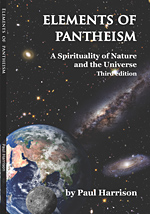CONTENTS |
|
Introduction |
|
Virgil
|
Goethe
|
Romantic Poets Bookstore[in assoc with Amazon Books] |
|
A sense sublime
Of something far more deeply interfused,
Whose dwelling is the light of setting suns,
And the round ocean and the living air,
And the blue sky, and in the mind of man.
William Wordsworth.

Ferns, Scotland.
By its very nature, poetic imagery links human thoughts and emotions intimately with the external world. Often it attributes human emotions to natural objects – what Ruskin called the “pathetic fallacy”. Typical is Samuel Johnson’s description of pastoral poetry as the kind “in which, among other things, clouds weep.”
Sometimes the world is distorted into the shape of a human emotion. Often it is the world itself that shapes the emotion. Often – as in haiku – it is impossible to say which precedes which: the external world is clearly and vividly perceived, yet the concrete object is chosen to reflect the mood.
Hence poetry has an implicit tendency towards pan-psychism – the feeling that soul pervades all matter. The full development of this feeling is pantheism.
This pantheistic tendency became explicit among the Romantics. Spinoza, long neglected, had been revived in Germany by Lessing, and became widely known through Lessing’s public debate with Jacobi. The young Goethe read and liked Spinoza. Coleridge, well acquainted with German culture, was probably the conduit through which pantheism came to Britain (though John Toland was the first to introduce the word).
Coleridge himself could be described as pantheistic for only a few years, and eventually reverted to trinitarian Christianity. Wordsworth was clearly a nature-worshipping pantheist, but as the years passed and his fame grew, he introduced more theistic tones into his work (and revised the Prelude in this spirit too).
The younger generation of Romantics were more openly unorthodox. Keats expressed his pantheist views in a letter to his brother and sister: it was a melancholic, dualist kind of pantheism, of which little is openly visible in his poetry.
Shelley is better known as an atheist than as a pantheist, but in his atheist tracts he is careful not to exclude the idea of a universal spirit – an idea that makes his Ode to the West Wind one of the most powerful poetic statements of pantheism.
Translations are by Paul Harrison.
Virgil (70-19BC)
Heaven and earth, the watered plains, the moon’s shining globe, the sun and stars are all strengthened by Spirit working within them, and mind stirs this great mass, infused through all its limbs and mixed in with its body. [Aeneid vi.724-727 (30-19BC)]
William Blake (1757-1827)
To see a World in a Grain of Sand
And Heaven in a Wild Flower,
Infinity in the palm of your hand
And Eternity in an hour.
Auguries of InnocenceEnergy is the only life, and is from the Body; and Reason is the bound or outward circumference of Energy. Energy is eternal delight …
Eternity is in love with the productions of time.
God only Acts and Is, in existing beings or Men.
[The Marriage of Heaven and Hell (1793)]
William Wordsworth (1770-1850)
A motion and a spirit that impels all things …
And I have felt
a presence that disturbs me with the joy
Of elevated thoughts; a sense sublime
Of something far more deeply interfused,
Whose dwelling is the light of setting suns,
And the round ocean and the living air,
And the blue sky, and in the mind of man:
A motion and a spirit, that impels
All thinking things, all objects of all thought,
And rolls through all things. Therefore am I still
A lover of the meadows and the woods,
And mountains; and of all that we behold
From this green earth …
[Tintern Abbey, 93-105 (1798)]
Samuel Taylor Coleridge (1772-1834)
At once the Soul of each, and God of all …
O! the one Life within us and abroad,
Which meets all motion and becomes its soul,
A light in sound, a sound-like power in light,
Rhythm in thought, and joyance everywhere –
Methinks, it should have been impossible
Not to love all things in a world so filled…
And what if all of animated nature
Be but organic harps diversely framed,
That tremble into thought, as o’er them sweeps
Plastic and vast, one intellectual breeze,
At once the Soul of each, and God of all.
[The Eoliean Harp (1795-1817)][To his baby, sleeping in a cradle.
Coleridge hopes for a better future for her than his own childhood, reared in the city.] But thou my babe! shalt wander like a breeze
By lakes and sandy shores, beneath the crags
Of ancient mountain, and beneath the clouds,
Which image in their bulk both lakes and shores
And mountain crags: so shalt thou see and hear
The lovely shapes and sounds intelligible
Of that eternal language, which thy God
Utters, who from eternity doth teach
Himself in all, and all things in himself.
[Frost at midnight 1798]
John Keats (1795-1821)
There may be intelligences or sparks of the divinity in millions…
Call the world if you Please “The vale of Soul-making” .… I say “Soul making” Soul as distinguished from an Intelligence-There may be intelligences or sparks of the divinity in millions–but they are not Souls till they acquire identities, till each one is personally itself. I[n]telligences are atoms of perception –they know and they see and they are pure, in short they are God –how then are Souls to be made? How then are these sparks which are God to have identity given them–so as ever to possess a bliss peculiar to each ones individual existence? How, but by the medium of a world like this? This point I sincerely wish to consider because I think it a grander system of salvation than the Christian religion — or rather it is a system of Spirit-creation–This is effected by three grand materials acting the one upon the other for a series of years–These three Materials are the Intelligence–the human heart (as distinguished from intelligence or Mind) and the World or Elemental space suited for the proper action of Mind and Heart on each other for the purpose of forming theSoul or Intelligence destined to possess the sense of Identity. … I will call the world a School instituted for the purpose of teaching little children to read–I will call the human heart the horn Book used in that School–and I will call the Child able to read, the Soul made from that school and its hornbook. Do you not see how necessary a World of Pains and troubles is to school an Intelligence and make it a soul! A Place where the heart must feel and suffer in a thousand diverse ways! … As various as the Lives of Men are–so various become their souls, and thus does God make individual beings, Souls, Identical Souls of the sparks of his own essence–This appears to me faint sketch of a system of Salvation which does not affront our reason and humanity.
Letter to George and Georgiana Keats, 1819
Percy Bysshe Shelley (1792-1822)
Wild Spirit, which art moving everywhere; Destroyer and Preserver; hear, O hear!
O wild West Wind, thou breath of Autumn’s being,
Thou, from whose unseen presence the leaves dead
Are driven, like ghosts from an enchanter fleeing,
…..
Wild Spirit, which art moving everywhere;
Destroyer and Preserver; hear, O hear!… Thou
For whose path the Atlantic’s level powers
Cleave themselves into chasms, while far below
The sea-blossoms and the oozy woods which wear
The sapless foliage of the ocean, know
Thy voice, and suddenly grow grey with fear,
And tremble and despoil themselves: O hear!
….Oh! lift me as a wave, a leaf, a cloud!
Make me thy lyre, even as the forest is:
What if my leaves are falling like its own!
The tumult of thy mighty harmonies
Will take from both a deep, autumnal tone,
Sweet though in sadness. Be thou, Spirit fierce,
My spirit! Be thou me, impetuous one!Drive my dead thoughts over the universe
Like withered leaves to quicken a new birth!
And, by the incantation of this verse,
Scatter, as from an unextinguished hearth
Ashes and sparks, my words among mankind!
Be through my lips to unawakened Earth
The trumpet of a prophecy! O Wind,
If Winter comes, can Spring be far behind?Ode to the West Wind, 1819
Johann Wolfgang von Goethe (1749-1832)
Divine power is spread everywhere …
A bird and its young had been captured, and Eckermann was amazed to see that it went on feeding its young inside his house.
`If you believed in God, you would not be surprised. If God did not inspire the bird with this powerful instinct towards its young, and if the same did not pervade every living thing in nature, the world would not be able to exist! But divine power is spread everywhere and eternal love is active everywhere.
[Conversations with Eckermann, 29 May 1831]What kind of God would push only from outside,
letting the cosmos circle round his finger?
He likes to drive the world from inside,
harbours the world in Himself, Himself in the world,
so all that lives and weaves and is in Him
never wants for his power or his spirit.
Gedichte I 357.If the eye were not sun-like,
how could it ever spy the sun?
If God’s own power lay not inside us,
how could divinity delight us?
Gedichte I 367If through infinity the same
thing flows, eternally repeating,
if an arch, though manifold, can mightily
hold itself together,
If all things pour out lust for life,
the smallest and the biggest stars,
Yet all this striving, all this struggle
Is eternal peace in God the Lord.
Gedichte I 367Eternal, living action works
to recreate the created
so it never rigidifies.
What was not, it must become:
bright suns, coloured worlds,
never can it rest.
Eins und Alles, Gedichte I 369
Alfred Tennyson (1809-1892)
Closer is he than breathing, and nearer than hands and feet.
The sun, the moon, the stars, the seas, the hills and the plains –
Are not these, O Soul, the Vision of Him who reigns?
Is not the Vision He? tho’ He be not that which he seems?
Dreams are true while they last, and do we not live in dreams?
Earth, these solid stars, this weight of body and limb,
Are they not sign and symbol of thy division from Him?
Dark is the world to thee: thyself art the reason why;
For is He not all but that which has power to feel “I am I”?
Glory about thee, without thee; and thou fulfillest thy doom
Making him broken gleams, and a stifled splendour and gloom.
Speak to Him thou for He hears, and Spirit with Spirit can meet –
Closer is he than breathing, and nearer than hands and feet.
God is law, say the wise; O Soul, and let us rejoice,
For if he is thunder by law the thunder is yet his voice.
[The Higher Pantheism]Flower in the crannied wall,
I pluck you out of the crannies,
I hold you here, root and all, in my hand,
Little flower – but if I could understand
What you are, root and all, and all in all,
I should know what God and man is.
[From The Princess]Hallowed be thy name – Halleluiah! –
Infinite ideality!
Immeasurable Reality!
Infinite Personality!
Hallowed be thy name – Halleluiah!
We feel we are nothing – for all is Thou and in Thee;
We feel we are something – that also has come from thee;
We know we are nothing – but Thou wilt help us to be.
Hallowed be thy name – Halleluiah!
[The Human Cry]
Walt Whitman (1819-1892)
I hear and behold God in every object…
I hear and behold God in every object…
Why should I wish to see God better than this day?
I see something of God each hour of the twenty four,
and each moment then,
In the faces of men and women I see God, and in my own face in the glass.
I find letters from God dropped in the street – and every one is signed by God’s name,
And I leave them where they are, for I know that others will punctually come forever and ever.
Walt Whitman (1860)]A vast similitude interlocks all,
All spheres, grown, ungrown, small, large, suns, moons, planets, comets, asteroids,
All distances, however wide,
All distances of time – all inanimate forms,
All Souls – all living bodies, though they be ever so different, or in different worlds,
All gaseous, watery, vegetable, mineral processes – the fishes, the brutes,
All men and women – me also,
All nations, colors, barbarisms, civilizations, languages,
All identities that have existed, or may exist, on this globe or any globe,
All lives and deaths – all of past, present and future,
This vast similitude spans them, and always has spanned, and shall forever span them, and compactly hold them.
[Leaves of Grass 12]
Leconte de Lisle, (1818-1894)
The soul . . feels herself bird, flower, living water, light …
… … …. . the soul dives
into the joyful beauty of this graceful world,
and feels herself bird, flower, living water, light;
she takes on your robe, primal purity,
and rests, silently, in God.
[Le Bernica (1862)].The silent stars, interlacing their fires,
ever surging out of endless space,
sparkled like a hail of gold on the waves,
or soared back to swim in the divine ocean . .Oh nights of my native sky, perfumes of green hills,
dark leaves filled by long, vague sighs,
And you, suns, burning in your celestial steppes,
and you, waves which sing and die away! …Ecstasy of the senses, magnetic vertigos,
where I whirled, free of fear, thought or words! . .Nature! Tranquil and immense beauty,
majestic abyss where sacred oblivion sleeps,
why did you not immerse me in your immortal peace?
[Ultra coelos (1862)]Nature laughs at human suffering,
contemplating only her own grandeur,
she gives to all her sovereign power,
keeping her calm splendour for herself.
[La fontaine aux lianes (1862)]
Oscar Wilde (1854-1900)
We are made one with what we touch and see…
We are resolved into the supreme air,
We are made one with what we touch and see,
With our heart’s blood each crimson sun is fair,
With our young lives each spring-impassioned tree
Flames into green, the wildest beasts that range
The moor our kinsmen are, all life is one, and all is change.With beat of systole and of diastole
One grand great life throbs through earth’s giant heart,
And mighty waves of single Being roll
From nerve-less germ to man, for we are part
Of every rock and bird and beast and hill,
One with the things that prey on us, and one with what we kill.
…One sacrament are consecrate, the earth
Not we alone hath passions hymeneal,
The yellow buttercups that shake for mirth
At daybreak know a pleasure not less real
Than we do, when in some fresh-blossoming wood
We draw the spring into our hearts, and feel that life is good.
…Is the light vanished from our golden sun,
Or is this daedal-fashioned earth less fair,
That we are nature’s heritors, and one
With every pulse of life that beats the air?
Rather new suns across the sky shall pass,
New splendour come unto the flower, new glory to the grass.And we two lovers shall not sit afar,
Critics of nature, but the joyous sea
Shall be our raiment, and the bearded star
Shoot arrows at our pleasure! We shall be
Part of the mighty universal whole,
And through all Aeons mix and mingle with the Kosmic Soul!We shall be notes in that great Symphony
Whose cadence circles through the rhythmic spheres,
And all the live World’s throbbing heart shall be
One with our heart, the stealthy creeping years
Have lost their terrors now, we shall not die,
The Universe itself shall be our Immortality!
[Panthea]
Romantic Poets Bookstore |
|
| For UK Amazon links click on “UK” | |
| William Blake: Complete Poetry & Prose Paperback $18.36 UK |
 |
| Wordsworth: The Prelude Four texts 1798-1850 $15.96 UK |
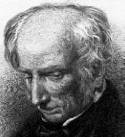 |
| Wordsworth: Selected Poems Penguin Classics $9.56 UK |
|
| William Wordsworth: A Poetic Life John Mahoney $17 UK |
|
| Coleridge: Complete Poems Penguin Classics $12.76 UK |
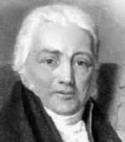 |
| Keats: Complete Poems Modern Library $13.27 UK |
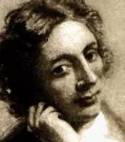 |
| Keats Biography by Andrew Motion $14.40 UK |
|
| Shelley: Complete Poems Modern Library $16.07 UK |
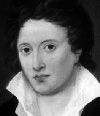 |
| Whitman: Complete Poetry & Selected Prose Paperback $14.90 UK |
 |
| Elements of Pantheism by Paul Harrison $7.99 UK |
 |
The Norton AnthologiesExpensive, but vast and comprehensive 2,500 page collections of most poetry and key prose, with excellent notes and background on each author and piece. These may be the only texts you’ll ever need, useful for all your life. |
|
| Norton Anthology of English Literature Vol 1 – to Mid 18th century $46.75 UK |
 |
| Norton Anthology of English Literature Vol 2 – from Blake to moderns $52.75 UK |
 |
| Norton Anthology of American Literature Vol 1 – 1620-1865 $52.75 UK |
 |
| Norton Anthology of American Literature Vol 2 – 1865 onwards $52.75 UK |
 |
Search Amazon USA for another book, CD or video: |
Search Amazon UK |

ARE YOU ATTRACTED BY THE ROMANTICS’ PANTHEISTIC NATURE-WORSHIP?
THEN YOU MAY WELL BE ATTRACTED TO SCIENTIFIC PANTHEISM.
SCIENTIFIC PANTHEISM reveres the universe as the only real divinity,
and nature as a sacred temple.
It fuses religion and science, and concern for humans with concern for the earth.
It provides the most solid basis for environmental ethics.
It is a religion that requires no faith and no revelation,
only open eyes and a mind open to evidence,
It has no guru other than your own self.
For an outline, see the Scientific Pantheism site. Top.
Top.
Suggestions, comments, criticisms to: Paul Harrison, pan@pantheism.net
© Paul Harrison 1996.

